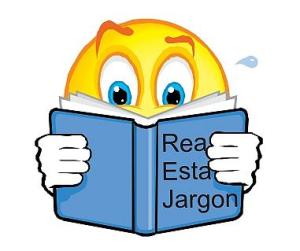 Confused about Real Estate terms you’ve heard ? Here’s a guide to some commonly used Real Estate jargon that will make you an expert in no time.
Confused about Real Estate terms you’ve heard ? Here’s a guide to some commonly used Real Estate jargon that will make you an expert in no time.
Amortization – Refers to the repayment schedule on a mortgage. At the beginning of a loan term, most payments are applied towards the interest due, rather than the principal. Towards the end of the loan term, the situation flips: the interest has been paid in advance, so most payments apply towards principal paydown.
APR – Stands for “annual percentage rate,” and is the most accurate indicator of the cost of a mortgage loan. The APR reflects all of the closing costs, which can total as much as 3 to 5 percent of the loan. The best way to price-compare between various mortgages is by looking at the APR rather than the interest rate. The APR can be found on your loan disclosure documents.
Appraisal – Refers to a qualified appraiser providing a written estimate of a property’s value. This is considered the most definitive expression of a property’s value (short of an actual arms-length transaction) and is often required by lenders.
Assessment – Refers to the city or county’s opinion of the property’s value. Important note: Assessments impact your property tax rate. Appraisals do not.
ARM – Stands for “adjustable-rate mortgage,” a type of mortgage in which the interest rate fluctuates based on the prevailing rates in the overall economy. Many ARMs will lock a fixed interest rate for a limited period of time, such as 5 years, 7 years or 10 years. Many will also guarantee that a rate increase will be “capped” at a certain maximum, such as 2 percent.
Balloon Payment – Refers to the practice of paying off the entire mortgage balance in full. Some loans (particularly those given to investors) are short-term mortgages that require a “balloon payment” at the end.
BPO – Stands for “Broker Price Opinion.” Refers to a licensed real estate broker providing a written opinion as to the fair-market value of a property. This is different than an appraisal.
Cash-Out Refinance – This refers to the practice of taking out a loan over a fixed term (as long as 30 years), borrowed against the equity in a home. For example: a homeowner who possesses a lot of equity can take a “cash-out refi” for tens of thousands, which he then uses to launch a business, buy a rental property, or any other goal.
Capital Gain – When an owner sells their home, the increased value of their home is a capital gain. Fortunately, owner-occupants who reside in their primary residence for two years or more do not need to pay capital gain tax on the sale of their property.
Closing Costs – A blanket term for all of the ancillary costs associated with borrowing a mortgage and buying a home. This includes title insurance, a loan origination fee, title search fees, recording fees, underwriting fees, and more.
Contingency – When a buyer submits an offer to purchase a property, they commonly make the offer “contingent upon” some condition, such as financing or a favorable home inspection. This means the offer “hinges upon” that condition playing out favorably, and can be withdrawn if the condition isn’t met.
Depreciation – Many people believe that their home value rises. In fact, the value of the underlying land may rise, but the actual structure depreciates each year. The roof, carpet, paint, HVAC and other components of the home experience aging and decay. (In markets with rapid appreciation, though, the retail value of the structure might outpace depreciation.) Depreciation is reported on IRS Form 4562.
Fixed-Rate – Unlike an ARM, a fixed-rate mortgage (sometimes just called “fixed”) retains the same interest rate over the duration of the loan, regardless of what’s happening in the overall economy. A 30-year fixed loan, for example, will retain the same interest rate for the full 30-year span.
FHA – Refers to the U.S. Federal Housing Administration. Many first-time homebuyers opt for loans that are insured by the FHA. Known as “FHA loans,” these require a smaller downpayment (as low as 3.5 percent).
GC – “General Contractor,” a licensed designation that indicates someone who organizes a major renovation and coordinates all the specialty sub-contractors such as the electricians, drywall installers and plumbers.
Highest and Best – Also known as “Best and Final,” this represents the best (seriously, the best) offer that you can make the seller. If the seller receives multiple offers, she might call for all the bidders to submit their “highest and best” (or “best and final”) offer by a particular deadline, so that she can select among these final offers.
Inspection – Prior to purchasing a house, a professional inspector (certified by ASHI, the American Society of Home Inspectors, or an equivalent organization) should spend 3-4 hours throughly investigating the home. The inspector focuses on structural flaws, mechanicals like plumbing and HVAC, and other aspects of the home. The inspector can furnish a written report, but cannot quote a price for repairs (he’s not a contractor.)
LTV – “Loan-to-value.” This refers to the ratio of the loan amount, relative to the overall value of a property. For example: a $70,000 loan on a $100,000 property will have a 70 percent LTV ratio.
RE – This is an easy term: “RE” simply stands for “real estate.” Many professionals use this shorthand.
REALTOR – Fun fact: Not all real estate agents are REALTORS. A real estate agent is an individual who is licensed to buy and sell real estate. A REALTOR is an agent or broker who belongs to the National Association of REALTORS.